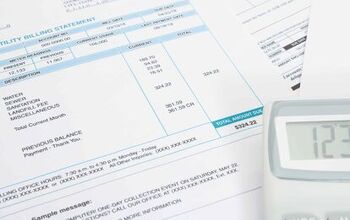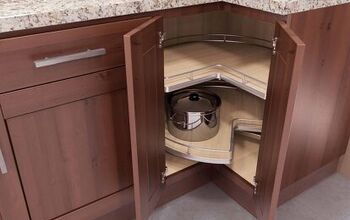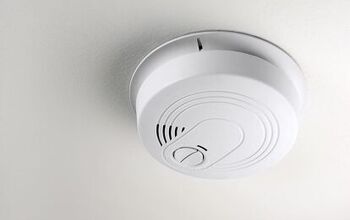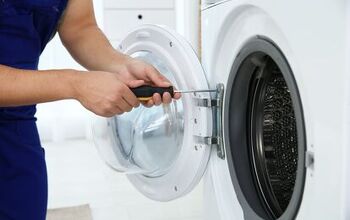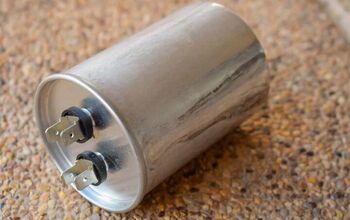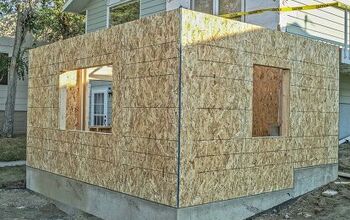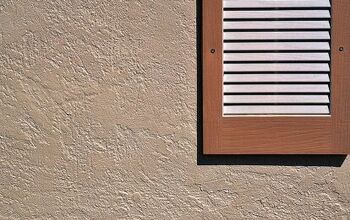Why Is My Electric Bill So High?

It can throw you for a loop when you get a particularly high electric bill. That is truer now than ever before, since the cost of living has increased so much in the past few years. So you may ask yourself, why is my electric bill so high?
Your electric bill is so high because of heating and cooling, air leaks, poor insulation, and idle electricity. Devices like TVs, coffee makers, and gaming consoles drain power when they’re plugged in even if you turn them off. Taking hot showers and leaving windows open when you run the AC or furnace can also explain why your electric bill is so high.
Seal the cracks in your walls and windows and put a door sweep beneath your front door to keep cool or warm air inside. Follow along as we explore why your electric bill is so high.
What Makes Your Electric Bill So High?
Everything from your home’s heating and cooling system to your water heater can make your electric bill so high that it’s hard to afford. Some drains on energy are easy to detect, but others are less obvious. Let’s look at the top reasons why your electric bill is so high and see how you can save money.
1. Air Conditioning And Heating
Air conditioning and heating are the biggest energy expenses for any homeowner. Heating and cooling make up over 50% of the average homeowner’s electric bill. This is a necessary cost, since everyone wants to feel comfortable at home.
Ideally, you should set your AC between 68 and 78 degrees Fahrenheit during the summer. To save money, you should set your furnace at 68 to 72 degrees throughout the winter. You can save money on your electric bill if you use blankets and wear layers of clothes when it’s cold instead of cranking up the furnace too high.
2. Leaving The Lights On
It’s all too easy to leave the lights on all day. However, lighting makes up 9% of your electric bill, so it’s smart to manage how long you use lights. Ideally, you should turn off lights if you don’t plan to return to the room or if you step out for 15-20 minutes.
Sleeping with the lights on is quite expensive, and it can also negatively impact your sleep cycle. Ambient light isn’t conducive to a healthy sleep cycle, so it’s best to turn the lights off.
3. Poor Insulation
A house without adequate insulation is doomed to have high energy bills. Insulation helps keep the air temperature inside your home comfortable, and this helps whether it’s summer or winter. You won’t need to run the heat high or for as long if your home has nice insulation.
According to the Department of Energy, insulation can help save 20% on your electric bill each year. It costs an average of $5,500 to insulate a home, but it varies based on the size of your house and the type of insulation you choose.
4. Faulty Appliances
Household appliances continue to advance each year, especially when it comes to energy efficiency. Old appliances, like dishwashers and dryers, are inefficient and drain lots of power. They even consume power when they are plugged in but turned off in many cases, and that adds a lot to your energy bill.
Ideally, you should replace old, faulty appliances with new units that comply with the Energy Star program. The Environmental Protection Agency started this program in 1992 to reduce the country’s carbon footprint and encourage the production of efficient appliances.
5. Incandescent Bulbs
It’s no secret that incandescent bulbs aren’t energy efficient. By now, countless homeowners have switched from incandescent bulbs to LED bulbs. It’s 5 times cheaper to run LED bulbs than incandescent bulbs, and LEDs are much better for the environment.
LED bulbs run at 10 watts, whereas incandescent bulbs run at 60 watts. You must replace incandescent bulbs every 1,000 hours, while LED bulbs last for up to 50,000 hours. It’s a no-brainer to upgrade to LED bulbs to reduce your electric bill and maintenance time.
6. Idle Electricity
Many people mistakenly think that electronic devices don’t affect your bills when they are turned off. However, most devices simply go into “standby” mode when they are turned off and still plugged in. This is known as idle electricity.
Referred to as “vampire devices”, electronics like TVs, coffee makers, and many computers draw power while plugged in. You can tell something is a vampire device if a red light displays when it’s plugged in but turned off. Unplug devices when you are done with them to save up to $200 per year on your electric bills.
7. Gaps Under Doors
The gaps under your home’s entry doors let bugs inside, and they waste energy. You must run the heat or AC for longer if the air escapes through the gaps under the doors. Not only does this waste energy and money, but it can also make your home uncomfortable.
Your HVAC system must work harder to keep up with the air loss. It takes longer for your home to reach the temperature you set your thermostat to when air sneaks out of the gaps under your doors. Luckily, you can simply install weatherstripping and door sweeps to close the gaps and lower your electric bill.
8. Unpredictable Weather
You can prepare for weather changes if you keep up with the local forecast, but it’s not always that easy. Unpredictable temperature changes can ruin your outdoor plans, and they can also explain why your electric bill is so high.
For example, your electric bill may spike in early fall if the temperature increases for a few days after a frost.
Switching back and forth between heating and cooling is often necessary throughout early spring and fall. While it is frustrating, you can help lower your electric bill if you compensate for the temperature changes with the clothes you wear.
Adding and removing layers of clothes can stop you from adjusting the thermostat during unpredictable weather. However, it’s worthwhile to adjust the thermostat if the heat wave or frost lasts more than 2 to 3 days.
9. Hot Water
Everyone loves to take a hot shower, but it comes at a cost. Water heating systems draw lots of power, so you may want to cut your hot showers short. The Department of Energy says that heating the water in your home accounts for 18% of your energy consumption.
Tankless water heaters are more energy efficient and can help save money on your electric bill. That said, they cost up to $700 more than traditional water heaters. Even still, many homeowners find the up-front cost worthwhile because of the long-term energy savings.
10. Overcharging Devices
How long do you leave your phone plugged in when you charge it? Overcharging devices like tablets, phones, and laptops can take a toll on your energy bill. It only takes 2 hours to charge most modern phones, so there’s no reason to leave it plugged in for longer than that.
Overcharging a device is also bad for the battery in the long run. Older phones can overheat if you charge them for too long. Keep an eye on the battery level when you charge a phone or laptop so you can unplug it when it’s charged.
11. Air Leaks
Homes aren’t always as airtight as they look, and that’s a big reason why your electric bill is so high. Whether it be cracks in your doors, windows, or walls, air can leak from any part of your home that is damaged. Even hairline cracks in your home’s exterior walls can grow bigger and eventually waste lots of energy.
The air in your home escapes from these cracks, so you will be tempted to adjust the thermostat to keep up with it. Between the temperature loss and necessary repairs, this can be an expensive problem. Hire a contractor or inspect the walls, windows, and doors in your home for cracks. It’s much cheaper to patch crack than to keep spending a fortune on electric bills.
12. Open Windows
It’s a waste of money to leave windows open when you run the AC or furnace. The cool or warm air circulating throughout your home won’t stay inside if the windows are open. That means that you will waste money and increase your electric bill without reaping the benefits. Close your windows before you turn on the AC or furnace.
Summing It Up
Excessive heating and cooling, faulty appliances, and incandescent bulbs can explain why your electric bill is so high. Unplug devices and appliances when you don’t use them, so they don’t draw power and increase your bill. Reduce your time in the shower if you use hot water and avoid overcharging your devices if your electric bill is so high that it’s become a problem.
Related Guides

Nick Durante is a professional writer with a primary focus on home improvement. When he is not writing about home improvement or taking on projects around the house, he likes to read and create art. He is always looking towards the newest trends in home improvement.
More by Nick Durante










